When you purchase through links on our site, we may earn an affiliate commission. Here's how it works. |
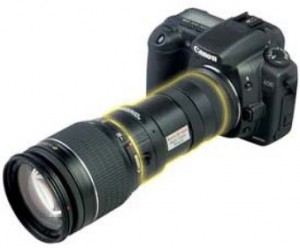
Specifically designed for Canon EOS-type cameras. Transforms dark scenes (below 10-4 lux) into bright, high-resolution images. AstroScope incorporates a high quality optic designed specifically for today’s digital SLR cameras and delivers full frame images with little or no vignetting.
See: Electrophysics via Engadget
cr

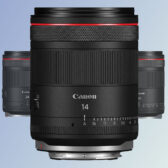
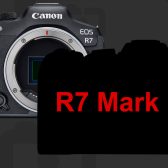
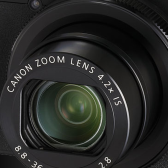
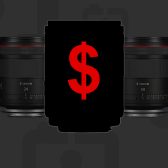
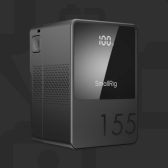
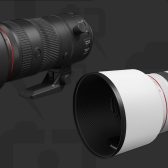

Seems expensive, site won’t say the price…
Bear in mind that high resolution for night vision products isn’t. Period. The quality of the intensified image won’t be anything approaching what a consumer digicam can produce in good light, let alone what a DSLR can do.
???? what are you talking about.
What’s that english man???
http://www.bhphotovideo.com/c/product/399151-REG/AstroScope_914656_Night_Vision_Adapter_9350_EOS_3PRO.html
A cheap $6000.
yeah, but its like effective ISO 102400, its not to be used when quality is the ultimate goal, rather when getting an otherwise impossible shot at acceptable quality is important
I would love to see a sample image, but I would never buy one there are too many things on the list before it.
Reminds me of those ads for x-ray glasses that they used to have in the back of the comics.
http://www.electrophysics.com/Browse/Brw_ProductLineCategory.asp?Area=NV&CategoryId=27#ImageGallery
essentially you get night vision capabilities but at the cost of image quality. I don’t see the point of this unless you’re stalking someone or work for the military.
Cool, but I’m dubious about the “high-resolution” bit, at least in the DSLR context. Those sample pics looked pretty bad (again, relatively speaking) and that’s with a tiny thumbnail of an image. Hate to see what full resolution looks like.
Just get a cheapo Nightshot Sony DV cam and a $40 IR portable light source and you can get equivalent images for under $400.
Sample footage on website:
http://www.electrophysics.com/e/multimedia-center-nv.asp
. . . . . . . .
and how much will this lens cost ?…
I don’t care. I want it anyway. lol
I use the 50mm 1.2. It gives me night vision.
I was thinking of using this camera for some mid-afternoon landscapes. Do you guys think I should use a neutral density filter of some sort to darken up a 2pm shot?
around US$6000
I’ve used Optex image intensifiers on 2/3″ video cameras.
They are pretty expensive (way more than the one listed here).
They used to be popular for shooting in war zones and the like.
You used to see lots of stuff shot with these on CNN.
BUT:
…using initial settings of 800 ISO, 1/30 second shutter speed, lowest f-stop (wide open aperture), using Manual focus. …
AND:
…. Even with the aid of a night vision device, low-light level noise and phosphor effects can confuse the focus sensors. This is a limitation of the camera, NOT the Electrophysics AstroScope hardware. …
So what is the advantage over HighISO (5D2, H2 gives 5 more F-Stops) in terms of image quality? I doubt that these grainy Thumbnails on the website are better in full resolution.
User not in time sure for action placed in box.
I would get me a nice 1ds for that price….
I can see it now on flickr:
“Your white balance looks a little green.”
IR photos are almost as cool but less expensive to take:
http://www.pbase.com/jeffreyk/infrared
I will buy if price could be around $5000
Is this a yes or no?
From Electrophysics.com FAQ:
“Is the AstroScope expensive?
The AstroScope 9350-series products are cost effective modular solutions. We designed the AstroScope with modularity in mind to save you money and to “build in†a level of forwards compatibility. You can take advantage of the unique opportunity to “swap†our patented Gen III AstroScope common module Central Intensifier Unit from one night vision imaging platform to another (for example, use one CIU for both a camcorder and an SLR camera setup).”
What camera is it attached to in the picture??
xxD
Thank you for your interest in our night vision equipment. We do offer adapters for Canon film and digital SLR cameras. The adapter mounts directly on the camera in between the camera and the lens which allows you to use your standard Canon lenses and maintains electronic communication between the camera and the lens. We just recently posted an announcement about our updated night vision adapters for use with Canon’s full frame sensor cameras. The updated adapter will have a back focus adjustment to make sure you have crisp focus and will have an attachment to take advantage of the full frame sensor. In addition we will offer a variable gain adapter which will allow you to work in very low light situations. The starting price for the night vision adapter with the full frame adapter is about $7,350.00
We offer several different grades of Gen III Central Intensifying Units depending on your budget and application which range in price from $4,000.00 to $6,970.00.
I am not an expert, or even an experienced amateur. I just want to be able to point, shoot, and take decent pics and some occassional vidoe.
I